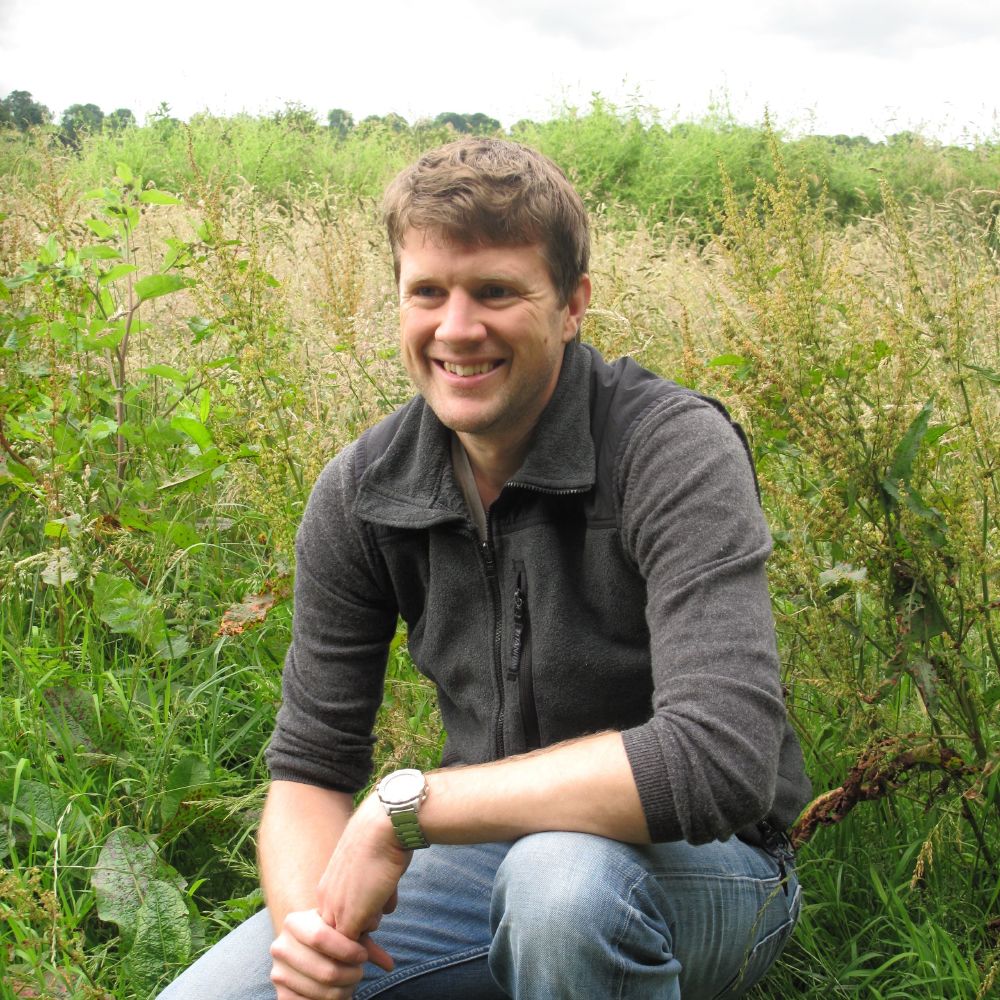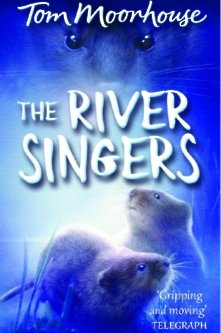
Tom Moorhouse

The River Singers is the story of four young water voles, Sylvan and his brother and sisters, growing up on the banks of the Great River and about to take their first steps into the wonderful but dangerous world beyond their burrow. The Great River is full of enemies like foxes, herons and weasels, but rumours of a new type of enemy have begun to spread. The rumours tell of whole colonies gone, of the Great River being stripped bare of her folk. Sylvan and his siblings know nothing of any of this until one night this enemy finds them in their burrow. In the confusion and terror they escape, but now are faced with a terrible decision: do they stay and try to fight for their home, or leave, and journey on down the Great River to find a new place, far from this threat.
This is your debut novel so how have you found the writing process?
Bizarrely, I found the writing process very quick (five months) and hugely enjoyable. I say 'bizarrely' because I had been writing for six or seven years by the time I sat down to start The River Singers, and it had never occurred to me to attempt a book about animals (and I might, here, admit to a weird, internal prejudice against those sorts of stories because I'm an ecologist and I saw animals as my day job, not something to write about). But once I began I quickly realised that there’s no such thing as "a book about animals": a story is a story and it doesn't matter whether characters are animals, humans or anything. Stories unfold a certain way and characters think and feel and react to them; readers relate to the characters and as long as there's a level of connection and understanding then hopefully everything works and it's fun to read. And writing about water voles is great because the problems they face tend to be life-threatening. Their world is an odd mixture of beautiful, extremely dangerous, very familiar and quite alien. It lets me place my characters in strange and difficult situations and then look to see what sort of people they are. Once I'd grasped the above points I felt like a complete twit for ever having been prejudiced.
The Rising is out at the end of the year so what can you tell us about the sequel?
The Rising is the sequel to The River Singers. I knew roughly what it would be about almost from the second The River Singers went to Oxford University Press. Not to give too much away, imagine you live in a deep earth bank beside a river, or along a dyke in a marsh. Now imagine it starts to rain and doesn't stop for weeks. Imagine that the waters are creeping up the walls of your burrow. Imagine that Sinethis, the Great River is angry, but that somewhere, all but lost in her rage, you know she is calling to you with a faint but unmistakable message that something you thought forever lost might one day be returned. You have another journey to make, and more dangers to face - but this time the greatest danger is from the Great River herself.
As a complete aside, it had been quite dry for a long while in the UK until I began writing The Rising. Since then we've had Biblical quantities of rain and two lots of major flooding in the UK - for which I've been taking some blame from various quarters. It wasn't my fault, honest!
The book I said to rival Wind in the Willows, so does this make you feel?
I believe the opposite phrase is "from your lips to God's ears". Comparisons with The Wind in the Willows are brilliant and probably inevitable because both books deal with anthropomorphised characters in a riverbank setting. In terms of rivalry, if The River Singers ever became anything like as popular and loved as The Wind in the Willows I'd be extraordinarily happy for a very, very long time. But otherwise I think the two books are actually quite different. If there were an imaginary line stretching from a human to, say, a squirrel, then Ratty, Mole and Badger are definitely at the human end: they wear clothes, have picnics and drive cars. In essence they are there to mildly lampoon certain English social stereotypes. They are humans in animal costumes, and that's why the book works so well. It was important to me, though, that my characters be as close to the squirrel end of the line as possible, and that everything they experience could happen to a real water vole. In this sense The River Singers is far more like Watership Down than The Wind in the Willows.
How much has your expertise in voles transferred into the book?
Ooh, lots. My aim was to write a fun adventure story about water voles, but one in which all of the details of their lives are as accurate as possible. So if I've done my job as a writer properly (time will tell) by the time you finish the book you should mainly have enjoyed the adventure and way the characters react to the life-threatening situations, and hopefully feel satisfied at the outcome. Then, perhaps, you might think back to some of the descriptions of the natural world, and how the characters interact with it and each other, and perhaps find that, without really being conscious of it, you now know a lot more about water voles than you did. That was my aim, so the main challenge was to incorporate all of the details that I acquired over the eight years I studied water voles, but to keep them secondary to the adventure.
When did your passion for nature begin?
I grew up in a very small market town in the North East, surrounded by hills and woods (and, yes, a river runs past the town). So I spent a lot of time walking and playing out in the countryside. And I have very clear memories of sitting down with my Mother and consuming every David Attenborough documentary I could. So it's fair to say that the passion began quite early on!
At what point did your realise that your work would translate into a children’s book?
Ah...well. The truthful answer is that I only realised it when I'd already been writing and rewriting the first pages of The River Singers for few weeks. As I say above, I hadn't quite twigged that writing about animals could be as rewarding as it has turned out to be, and it took a very wise person to (patiently, in words of one syllable) explain to me that I could clearly write, and clearly had a passion for wildlife, so why not put the two together? So I gave it a go, and spent those first weeks trying to get the tone and the feel right. One morning I hit on the line "The dawn was grey and the waters quiet". It might not sound much but it got me excited enough to phone my mother (who was bemused that I was making such a fuss about it). That one line, which opens the main part of the book, contains just the right feel - it's lyrical but with an almost foreboding edge, and that's how I wanted the book to be. Almost as soon as I found it I knew I could write the rest of the novel.
What is next for you?
More writing....always more writing. I've finished the first proper draft of the third book, but I'm sure it'll need some rethinking and rewriting in places. I have a few more ideas for books I'd like to be getting on with, so I don't think I'll be slowing down any time soon. To be honest writing isn't something I think I can stop doing for any length of time (perhaps the odd month, here and there). I love it too much to be away for too long.

